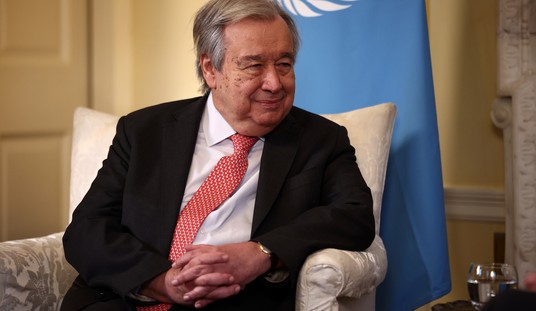
Judiciary Committee Chairman Jerrold Nadler, D-N.Y., gives his opening statement as former special counsel Robert Mueller testifies before the House Judiciary Committee hearing on his report on Russian election interference, on Capitol Hill, Wednesday, July 24, 2019, in Washington. (AP Photo/Alex Brandon)
Americans have moved on from the Russian collusion hoax, but House Democrats just can’t seem to let go.
House Judiciary chairman, Jerry Nadler, has two goals at the moment. He would like former White House counsel Don McGahn to testify before his committee. Additionally, he is seeking the secret grand jury information from the Mueller investigation.
In order to prevent “attempts to game the system by shopping” for a friendly judge, cases are assigned to judges randomly. If two cases are related, it is sometimes possible to link them. This would be advantageous if a sympathetic judge had been assigned to the first case and the plaintiff believes the judge would rule favorably on the second case. However, the cases must be related.
Nadler tried to link the two above mentioned cases. The first, regarding the subpoena for Don McGahn, is a civil case and the second, their request to view grand jury material is a federal case. The House Judiciary panel claims the cases are related because they are both part of their “impeachment investigation” of Trump. They identify McGahn as the “most important witness, other than the President, to the key events that are the focus of the Judiciary Committee’s investigation.”
In a one-two punch, Nadler’s request was torpedoed by both the DOJ and the Washington, D.C. District Court Chief Judge, Beryl Howell.
In a Tuesday court filing, the DOJ alleged that Nadler and the other Democratic members of the Judiciary Committee were trying to exploit this exception. They argued:
The panel improperly sought to connect the McGahn case to the grand jury case simply because they’re both part of their investigation of President Trump.
This later-filed, subpoena-enforcement suit involves no issues of fact or law common to the earlier Grand Jury application, nor does it focus on a common event or transaction such that the matters would be ‘related.’
On Wednesday, Judge Howell followed suit. She wrote:
At first blush, the House Judiciary Committee’s view that the related case rule applies is understandable. Nonetheless, closer examination demonstrates that these connections between the two cases are too superficial and attenuated for the instant McGahn Subpoena Case to qualify.
The committee’s request to unseal secret grand jury information from former special counsel Robert Mueller’s probe has to do with the application of the law under the Federal Rules of Criminal Procedure, while the McGahn case is a civil matter dealing with enforcing a subpoena where immunity has been asserted.
The DOJ also claimed:
The term ‘related’ refers to cases that have ‘common issues of fact or stem from a common event or transaction. The committee gets it backwards because they are trying to relate completely unrelated cases simply because it filed them in service of its overarching desire to bring various matters together in its investigation of the President.
McGahn’s refusal to comply with a subpoena is the real ‘event or transaction’ in this case, not the Committee’s asserted ‘impeachment investigation.’
Howell echoed the DOJ’s argument, noting that “the legal issues in the grand jury case, are entirely absent from the McGahn case.”
Both Howell and the DOJ made the point that McGahn refused to testify in May, yet Nadler’s committee “waited until August – soon after filing the grand jury information case – to sue over it.”
I guess that would be a no, Jerry.














Join the conversation as a VIP Member